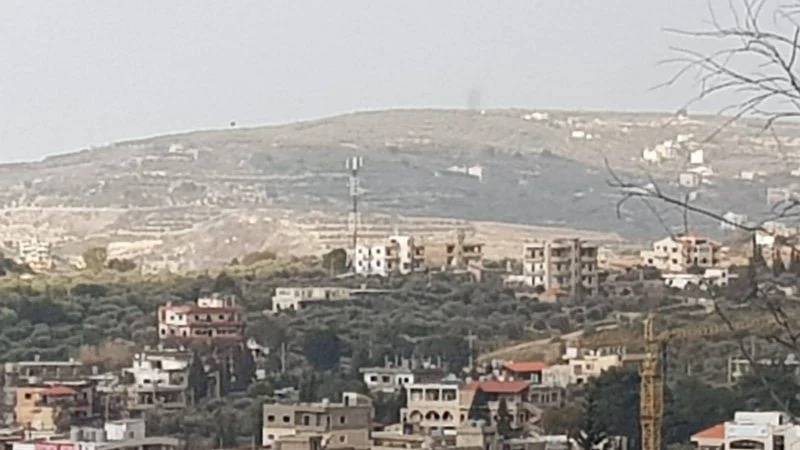
View of a village in Akkar, North Lebanon. (Credit: Michel Hallak/L'Orient Today)
BEIRUT — A law that would allow municipalities to grant exceptional building permits, circumventing the permitting process, is expected to be voted on in a Parliament session Monday. The law would double the allowable buildable surface area to up to 240 sqm in rural areas. Experts and critics warn that this amounts to an electoral bribe that would enable haphazard building, which they add would also negatively affect the environment.
Here’s what we know:
• Parliament’s Administration and Justice Committee approved the law proposal, exempting some building permits from fees according to modified model designs, on 30 Nov. 2021. The committee decided that the law aims to encourage citizens to build in their villages according to designs that take into account the laws of urban planning and the aesthetic aspect of construction and make it easier for people with limited income to build operations and help them to build in the countryside, “which reduces displacement.”
• The law allows people to build up to two floors no bigger than 240 square meters in areas that do not have a pre-modeled “master plan.” This accounts for 66 percent of Lebanese territories, Jad Tabet, the former head of the Order of Engineers and Architects, told L’Orient Today. Tabet warned that in practice, the law ultimately legalizes non-permitted buildings. “While the minister of interior would previously pardon violations to the building code during election time, this would effectively turn that practice into a law.” Ahead of the 2017 elections, Interior Minister Nohad Machnouk had instructed municipalities to grant these authorizations, although they were in full violation of the law, according to Tabet.
• The committee stated that the law was modified by the unanimous consent of its members present, while a representative of the engineers’ syndicate in Beirut, Divina Abou Jaoude, was in attendance at the meeting. MTV reported on Saturday that MP Hadi Hobeish (Future/Akkar) was optimistic that the law would be approved as he said “there is a general consensus on its approval.” Hobeish told L’Orient Today on Sunday that discussion on the law had been ongoing for two years and that the syndicate of engineers and architects had agreed to the latest version of the proposal.
• Proponents of the law say that this will make building much easier as it will smoothen the process of building permits and allow for more agile construction, which faced considerable obstacles due to the economic and political crisis. Hobeish added that the law, if approved, would not be applied retroactively and that “possible arrangements would be made” with those who had violated building regulations that would be accepted under the new law. However, Tabet said that when the law was proposed two years ago, the syndicate’s objection to it was not taken into account. “It was mainly used in connection with election campaigns, as an electoral promise,” he said.
• Mona Fawaz, professor in Urban Studies and Planning at the American University of Beirut, concurs that the main issue is that the proposal to be voted on Monday “regularizes” an illegal practice that would allow municipalities (exceptionally) to grant “authorizations,” which typically occur ahead of elections. Historically, such arrangements existed in the 1950s to allow farmers in rural areas to build 50 square meter buildings as permitting processes were difficult due to a lack of engineers; however, according to Fawaz, the order consists of about 50,000 registered professionals today. “With this law they want to adopt the same principle to a much bigger area, without any typical plans or knowing whether they will abide by them, basically allowing people to build anywhere they want outside the regulated areas, endangering natural waterways and ecological continuities,” Fawaz told L’Orient Today.
• Not only does the allowed buildable area in the law exceed 240 square meters in practice, as it excludes balconies and underground buildings, it also exempts people from taxes if they add stone and red tiles. “This is not a law to protect low-income people: if you are trying to help low-income people, you exempt the poor from taxes, not the rich if they can add stone and tiles,” Fawaz added.